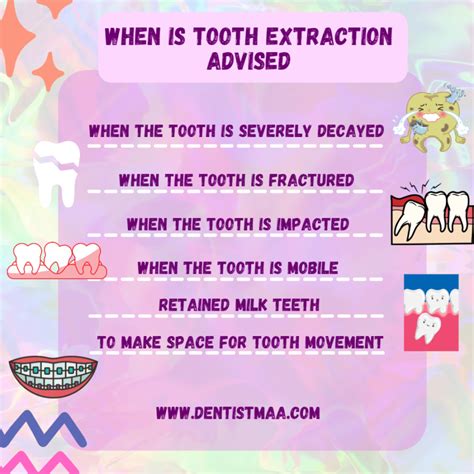When Should I Call My Dentist Post-Extraction?
Tooth extraction, while a common procedure, requires careful post-operative care. Knowing when to contact your dentist is crucial for preventing complications and ensuring a smooth recovery. This guide outlines scenarios that warrant an immediate call, as well as those that may require a follow-up appointment.
What are the Normal Signs of Recovery After a Tooth Extraction?
Before we delve into when you should call your dentist, let's establish a baseline of what's considered normal after a tooth extraction. Expect some degree of:
- Bleeding: Some bleeding is normal for the first few hours. However, excessive bleeding (soaking through multiple gauze pads in an hour) is a cause for concern.
- Swelling: Swelling and bruising around the extraction site are common and usually peak within 2-3 days.
- Pain: You'll likely experience some pain and discomfort. This should be manageable with prescribed or over-the-counter pain medication.
- Discomfort When Swallowing: Some discomfort while swallowing is also normal due to the proximity of the extraction site to the throat.
When Should I Call My Dentist Immediately After a Tooth Extraction?
These situations require an immediate call to your dentist:
Excessive Bleeding
As mentioned, bleeding that soaks through several gauze pads in a short time frame is not normal. Continuous oozing or bright red bleeding requires prompt attention. Apply firm pressure with a clean gauze pad for at least 30 minutes, and contact your dentist immediately if it doesn't subside.
Severe or Uncontrollable Pain
Pain is expected, but pain that is significantly intense, unresponsive to medication, or accompanied by other concerning symptoms (fever, etc.) needs immediate medical attention. Don't suffer in silence; contact your dentist.
High Fever and/or Chills
A high fever (above 101°F or 38.3°C) alongside chills is a clear sign of infection and demands immediate medical attention. This could be a serious complication requiring prompt treatment.
Signs of Dry Socket
Dry socket, or alveolar osteitis, is a painful complication that can occur when the blood clot at the extraction site dislodges. Symptoms include severe pain, a bad taste in your mouth, and sometimes a visible empty socket. This requires immediate professional treatment.
Difficulty Breathing or Swallowing
If you experience difficulty breathing or swallowing, especially if it's accompanied by swelling in your throat area, seek immediate medical attention. This could indicate a serious complication requiring immediate treatment. This is a medical emergency and shouldn't be delayed.
When Should I Schedule a Follow-Up Appointment?
While not urgent, some post-extraction issues warrant a follow-up appointment:
Persistent Swelling that Increases After a Few Days
While some swelling is normal, persistent or increasing swelling several days post-extraction could indicate a problem and should be checked by your dentist.
Numbness that Persists Longer Than Expected
Numbness in the area is often temporary due to the anesthetic. However, if the numbness persists for a prolonged period, it’s important to consult your dentist to rule out any nerve damage.
Persistent or Recurring Pain
While pain medication should manage most discomfort, if the pain persists or returns after a period of relief, contact your dentist for guidance.
Signs of Infection (Mild):
Mild infection may manifest as increased pain, localized swelling, and a slight increase in temperature. While not immediately life-threatening, it’s important to get this checked out by your dentist to prevent it from becoming more serious.
Post-Extraction Care Tips
Following your dentist's instructions is key to a smooth recovery. This includes:
- Rest: Allow yourself ample time to rest and avoid strenuous activity.
- Diet: Stick to soft foods initially and avoid using a straw.
- Oral Hygiene: Gently rinse your mouth with saltwater.
- Medication: Take prescribed pain medication and antibiotics as directed.
By diligently following post-operative instructions and seeking prompt attention when needed, you can significantly reduce the risk of complications and ensure a healthy recovery after your tooth extraction. Remember, it's always better to err on the side of caution and contact your dentist if you have any concerns.

